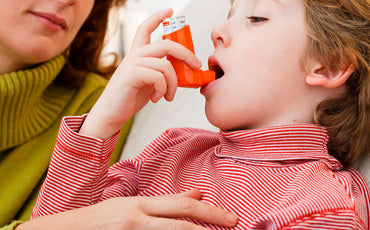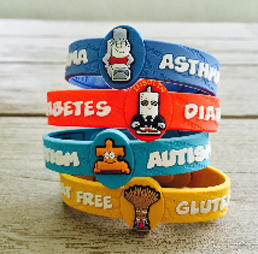
Eight things to know about allergy shots (to help you not go into anaphylaxis, like me!)
If you suffer from a pollen allergy, like me, you may be dreading spring’s arrival, despite being tired of the cold, snowy, icy weather we were dealt this winter. And like so many, you may be considering allergy shots to help you better deal with pollen, which is always on the rise.
Well, I’m here to tell you there are definite benefits to those shots, but there are also some things to be aware of… like that they can bring on ANAPHYLAXIS.
No kidding. It happened to me.
I wasn’t aware of just how important it is to take an antihistamine prior to getting an allergy shot and went into full-blown anaphylaxis. I had to drive back to the allergist’s office to get a shot of epinephrine. IN A HUGE STORM. As I sped down the roads, I wasn’t sure if I was going to succumb to the anaphylaxis or a tree falling onto my car. True story.
So to help you avoid this situation, I want to share these eight things my doctor shared with me about getting allergy shots:
1. You’ll begin your injections at the lowest dose and end them with the highest dose (this dose is called maintenance).
2. Starting out, you will get weekly shots, and some people may even need to go twice a week. The time between doses will gradually get longer, moving to bi-weekly and monthly and eventually ending after a few years.
3. You’ll want to take an antihistamine at least 30 minutes prior to your appointment or even the night before. This will help with any symptoms created by the shot; something that was not stressed to me during my immunotherapy. Now, my allergist’s office will ask every patient if he or she took their antihistamine, prior to giving them a shot.
4. Don’t exercise for two hours before or for two hours after getting your shot. This is because increased heart rate and blood flow may cause your body to distribute the shot faster than it needs to.
5. Be sure to alert the nurse administering the shot of any out of the ordinary symptoms you experienced from your last injection, in case your dose needs to be adjusted.
6. Also let the nurse know if you’re taking any new medications. You never know how they may react with the allergy shot.
7. You should plan to stay in the allergist’s waiting room for 20-30 minutes following your injection. That way you’re in the best place should a severe allergic reaction ensue. (At the same time, know that when I experienced anaphylaxis I had waited the 30 minutes. It wasn’t until after the wait time, while I was driving home, did I start to break out in major hives.)
8. If you have a fever or increased allergic symptoms, do not get your shot. You certainly don’t want to feel worse!
I hope these eight things help you to avoid a situation like mine when getting your allergy shots. They really are worthwhile when you follow the “rules!”
Iris
P.S. Want to hear more of my experiences in dealing with allergies? Sign up for my newsletter and I’ll share away!






